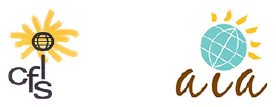Katrin Schroeter, Ph.D., UNM
April 5, 2020 (Sun) 3:00 – 5:00 p.m.
UNM School of Architecture, George Pearl Hall Auditorium
Update as of 3/17: All AIA lectures are on hold until further notice.
The cinema and culture of the Weimar Republic (1919-1933) presents, to this day, an opportunity to flaunt one’s assessment of Germany and its “soul”, a way to praise it, condemn it, excuse it, or defend it. As one of the most productive and successful eras of German Cinema, it started the careers of famed directors Fritz Lang, F.W. Murnau, and G.W. Pabst and addresses questions ranging from the role of urban space and the impact of technology on daily life to the construction of sexual difference and social alternatives. Located at the intersection of modernity and romantic mysticism, its films, such as The Cabinet of Dr. Caligari, Nosferatu: A Symphony of Horror, and Metropolis, are often seen as bearing testimony to the defeated nation after World War I and the emergence of National Socialism. Join Katja Schroeter as she examines developments in Weimar cinema and the long-standing impact of Weimar cinema.
Katrin Schröter is Associate Professor of German in the Department of Foreign Languages and Literatures at The University of New Mexico and holds an interdisciplinary Ph.D. in German Studies and Modern Culture and Media from Brown University. Her 2004 book Border Crossings: National Identity and Nation Formation in German Films 1980-2000 centers on films that fictionalize border crossings between East and West Germany. She is currently working on a book-length project focusing on questions of intermediality and adaptation in German literature and film since 1990. At UNM, she teaches a variety of classes in German and Film Studies, among them a class on Weimar Cinema and a graduate seminar on the Culture and Literature of the Weimar Republic.
Lecture: $15/Albuquerque International Association (AIA) Members, $20/Non-Members; High School & College Students with ID – Free. Please address checks to AIA and mail to AIA, PO Box 92995, Albuquerque, NM 87199 by April 2, 2020. You can also pay on-line with credit card or at the door (cash and check only).
Supported in part by Haverland-Carter Lifestyle Group, Sandia Laboratory Federal Credit Union
and the City of Albuquerque’s Urban Enhancement Trust Fund
